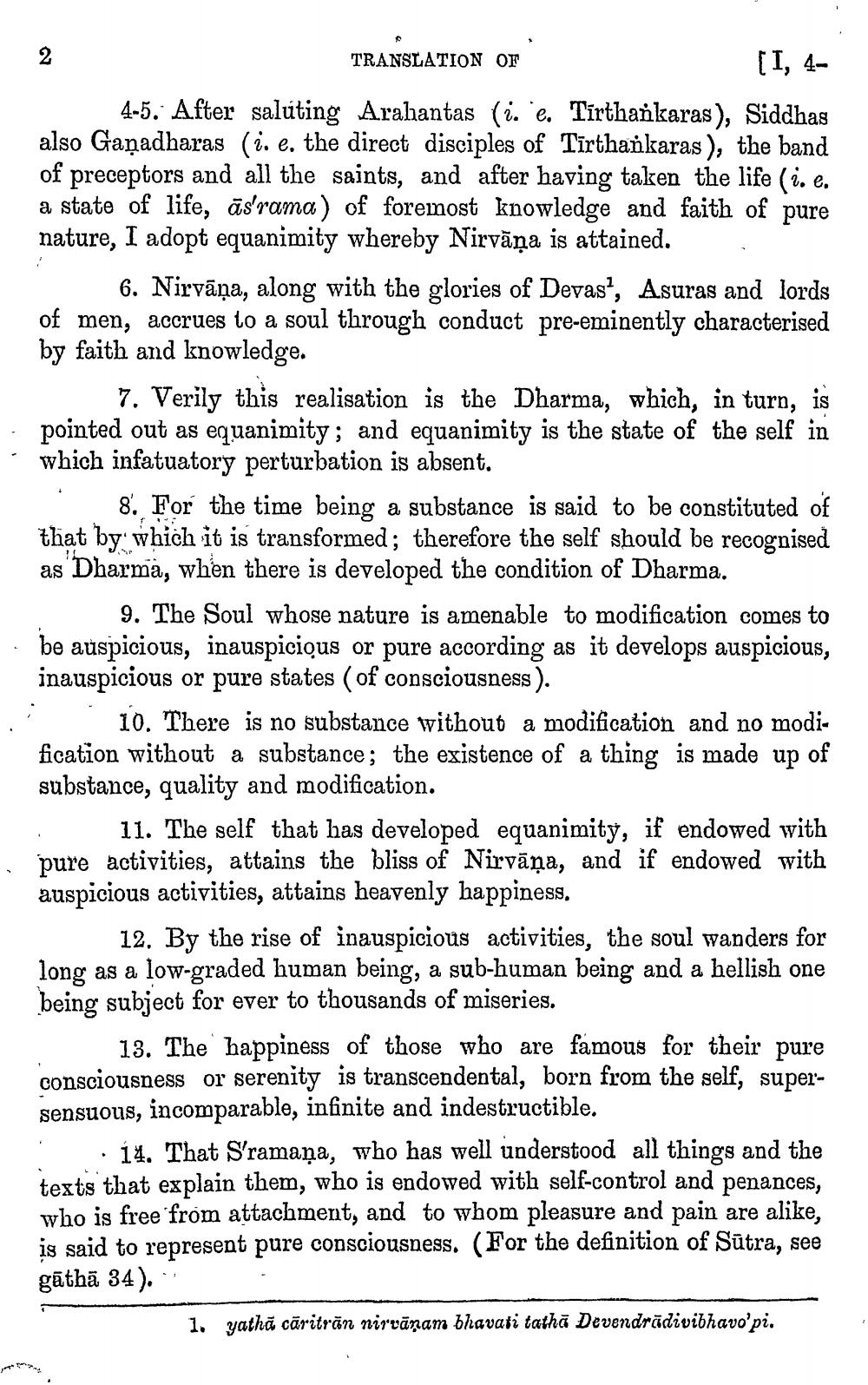________________
2
TRANSLATION OF
[I, 4
4-5. After saluting Arahantas (i. e. Tirthankaras), Siddhas also Ganadharas (i. e. the direct disciples of Tirthankaras), the band of preceptors and all the saints, and after having taken the life (i. e. a state of life, as'rama) of foremost knowledge and faith of pure nature, I adopt equanimity whereby Nirvana is attained.
2
6. Nirvāṇa, along with the glories of Devas1, Asuras and lords of men, accrues to a soul through conduct pre-eminently characterised by faith and knowledge.
7. Verily this realisation is the Dharma, which, in turn, is pointed out as equanimity; and equanimity is the state of the self in which infatuatory perturbation is absent.
8. For the time being a substance is said to be constituted of that by which it is transformed; therefore the self should be recognised as Dharma, when there is developed the condition of Dharma.
9. The Soul whose nature is amenable to modification comes to be auspicious, inauspicious or pure according as it develops auspicious, inauspicious or pure states (of consciousness).
10. There is no substance without a modification and no modification without a substance; the existence of a thing is made up of substance, quality and modification.
11. The self that has developed equanimity, if endowed with pure activities, attains the bliss of Nirvana, and if endowed with auspicious activities, attains heavenly happiness.
12. By the rise of inauspicious activities, the soul wanders for long as a low-graded human being, a sub-human being and a hellish one being subject for ever to thousands of miseries.
13. The happiness of those who are famous for their pure consciousness or serenity is transcendental, born from the self, supersensuous, incomparable, infinite and indestructible.
14. That S'ramana, who has well understood all things and the texts that explain them, who is endowed with self-control and penances, who is free from attachment, and to whom pleasure and pain are alike, is said to represent pure consciousness. (For the definition of Sutra, see gāthā 34).
1. yatha caritran nirvāņam bhavati tatha Devendrādivibhavo'pi.




